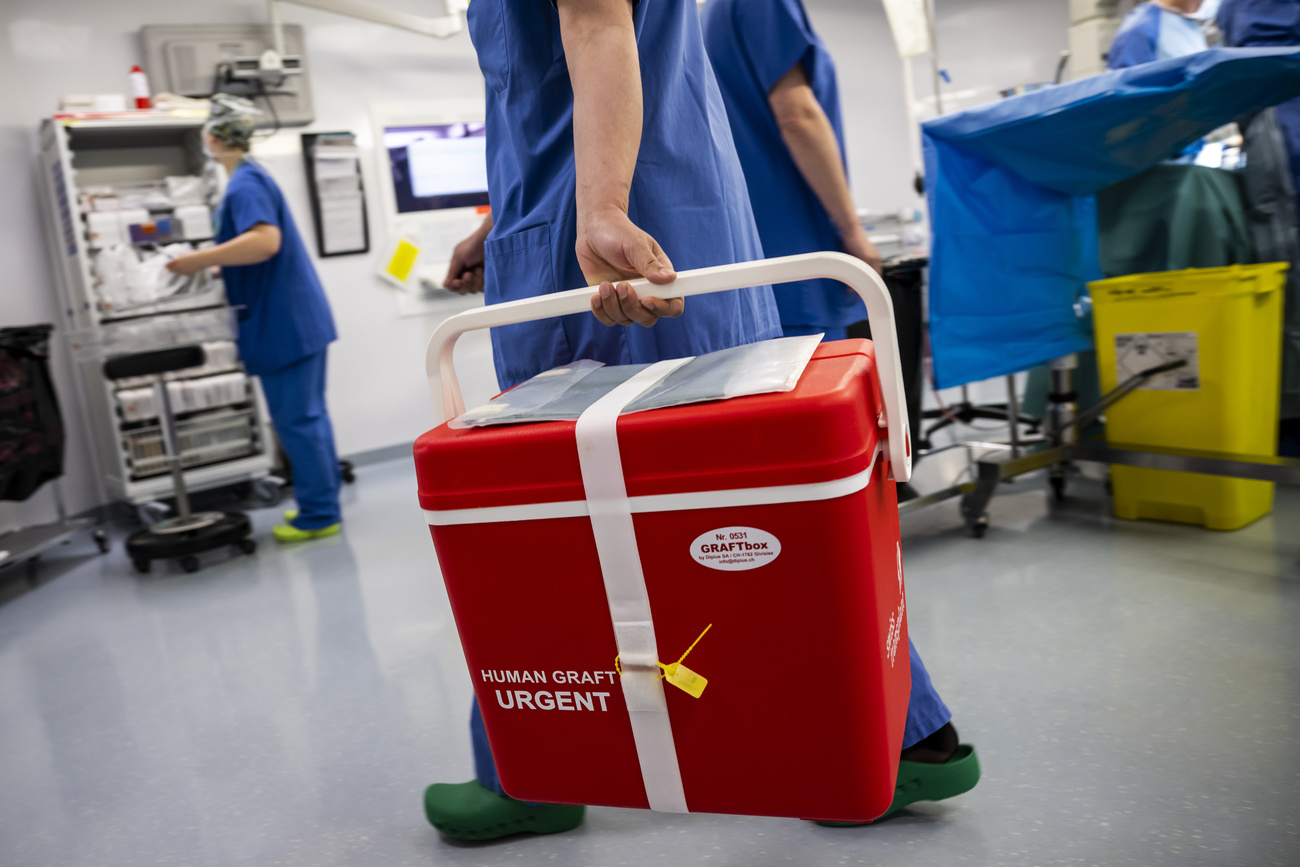
Transplantation reduces healthcare costs, says Swisstransplant

Transplantation not only improves quality of life, but it also saves money, said Swisstransplant on Saturday, National Organ Donation Day. Kidney transplants are particularly concerned.
“Renal transplants in particular offer significant savings for the health insurance system, particularly given the tight financial situation of the healthcare system,” said Franz Immer, director of Swisstransplant, on Swiss public television RTS.
+ Get the most important news from Switzerland in your inbox
Of the 2,225 patients on the waiting list for an organ donation in 2023, around two-thirds, or 1,490 people, were waiting for a kidney donation, said Swisstransplant in a press release. Kidney failure therefore places a heavy burden on the healthcare system.
+ Why the Swiss are donating more organs for transplant
People suffering from kidney failure generally require blood purification. These dialyses are carried out around three times a week for four hours, mostly in hospital.
“In principle, a year’s dialysis costs CHF 100,000 [$118,000],” explained Immer. “A kidney transplant, on the other hand, costs CHF60,000, and the kidney functions for an average of 18 to 20 years.”
Improving quality of life
Transplantation also improves patients’ quality of life, adds the director of Swisstransplant. The frequency of dialysis generally prevents them from going to work, and kidney failure leads to “great fatigue, pain and other drastic restrictions, particularly in terms of diet”, said the press release.
+ Voters give consent to new ‘opt-out’ system of organ donation
Immer believes that the number of organ donations will increase with the introduction of presumed consent in the broad sense, which should come into force in 2026.
In the meantime, Swisstransplant recommends that everyone make their decision known to those close to them and record it, for example on a donor card or in advance directives issued by the Swiss Medical Association.
Translated from French by DeepL/gw
This news story has been written and carefully fact-checked by an external editorial team. At SWI swissinfo.ch we select the most relevant news for an international audience and use automatic translation tools such as DeepL to translate it into English. Providing you with automatically translated news gives us the time to write more in-depth articles.
If you want to know more about how we work, have a look here, if you want to learn more about how we use technology, click here, and if you have feedback on this news story please write to english@swissinfo.ch.

In compliance with the JTI standards
More: SWI swissinfo.ch certified by the Journalism Trust Initiative































You can find an overview of ongoing debates with our journalists here . Please join us!
If you want to start a conversation about a topic raised in this article or want to report factual errors, email us at english@swissinfo.ch.